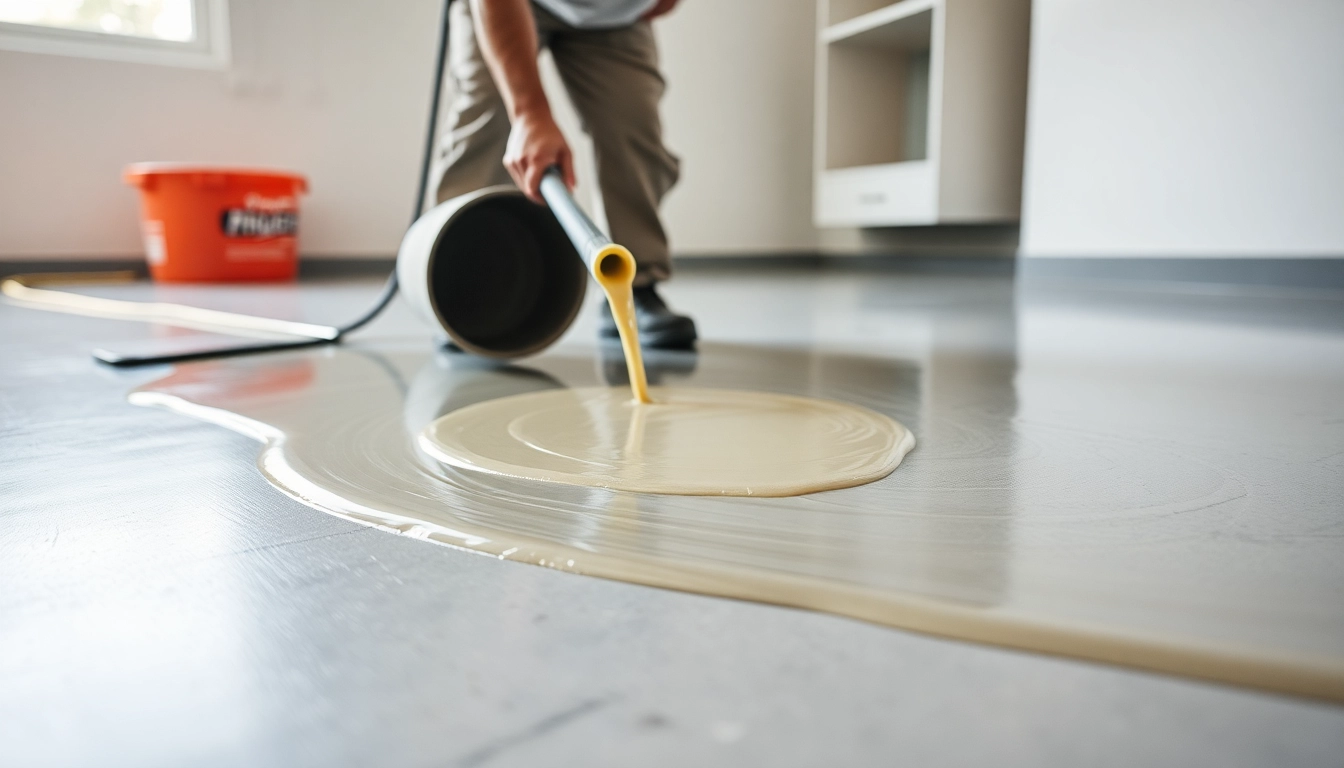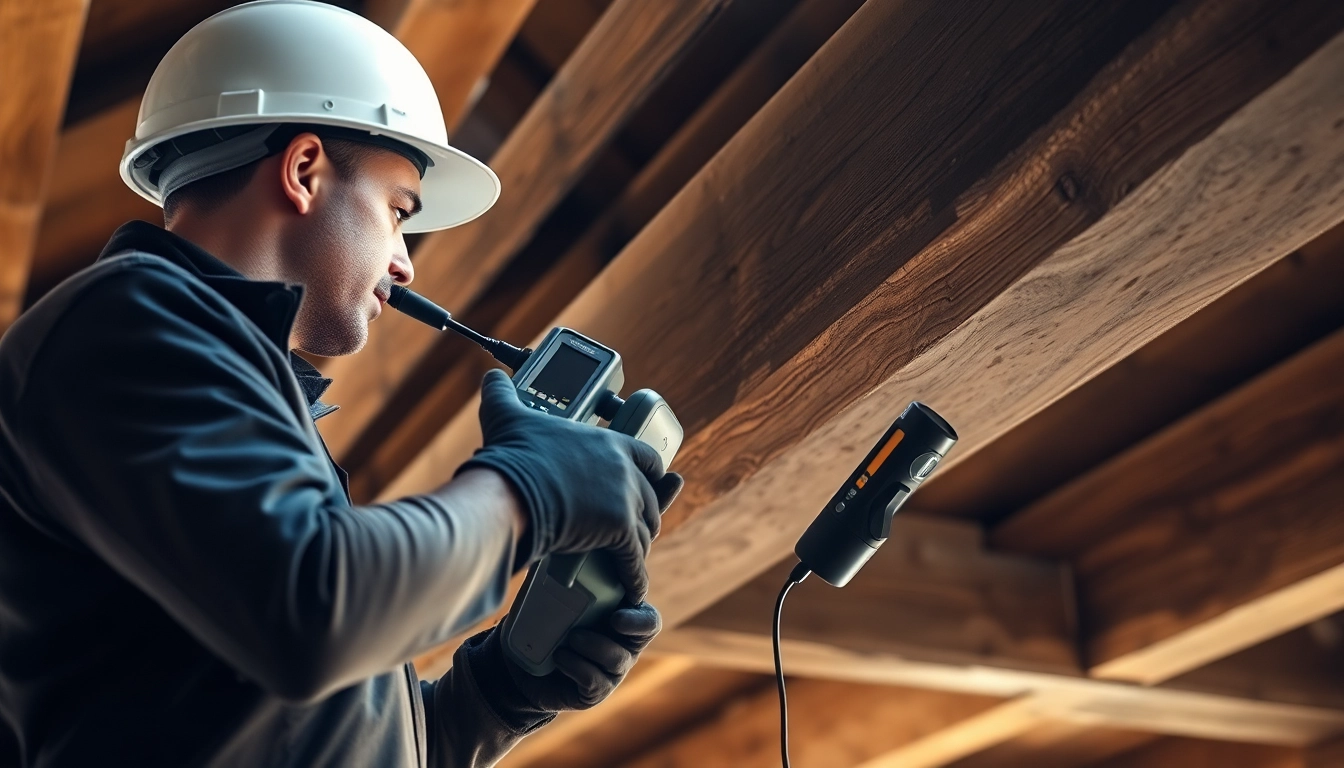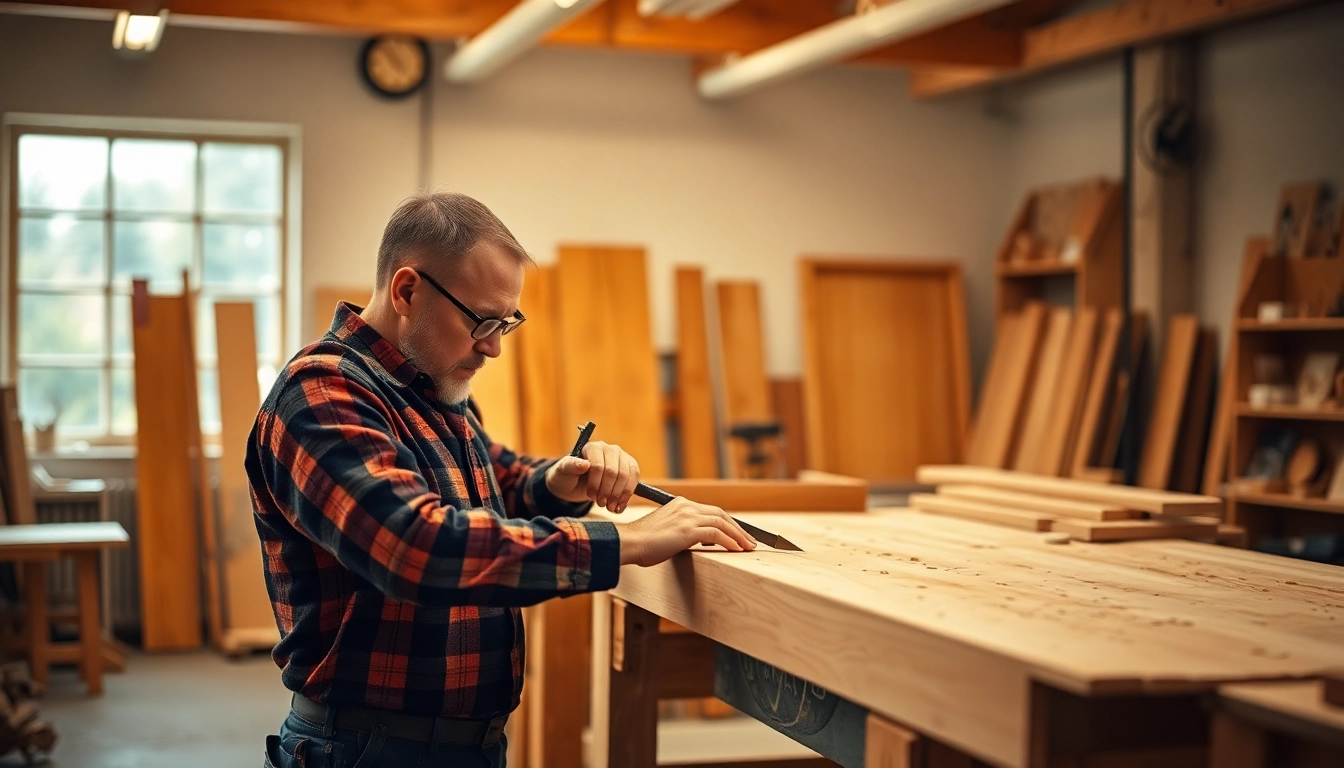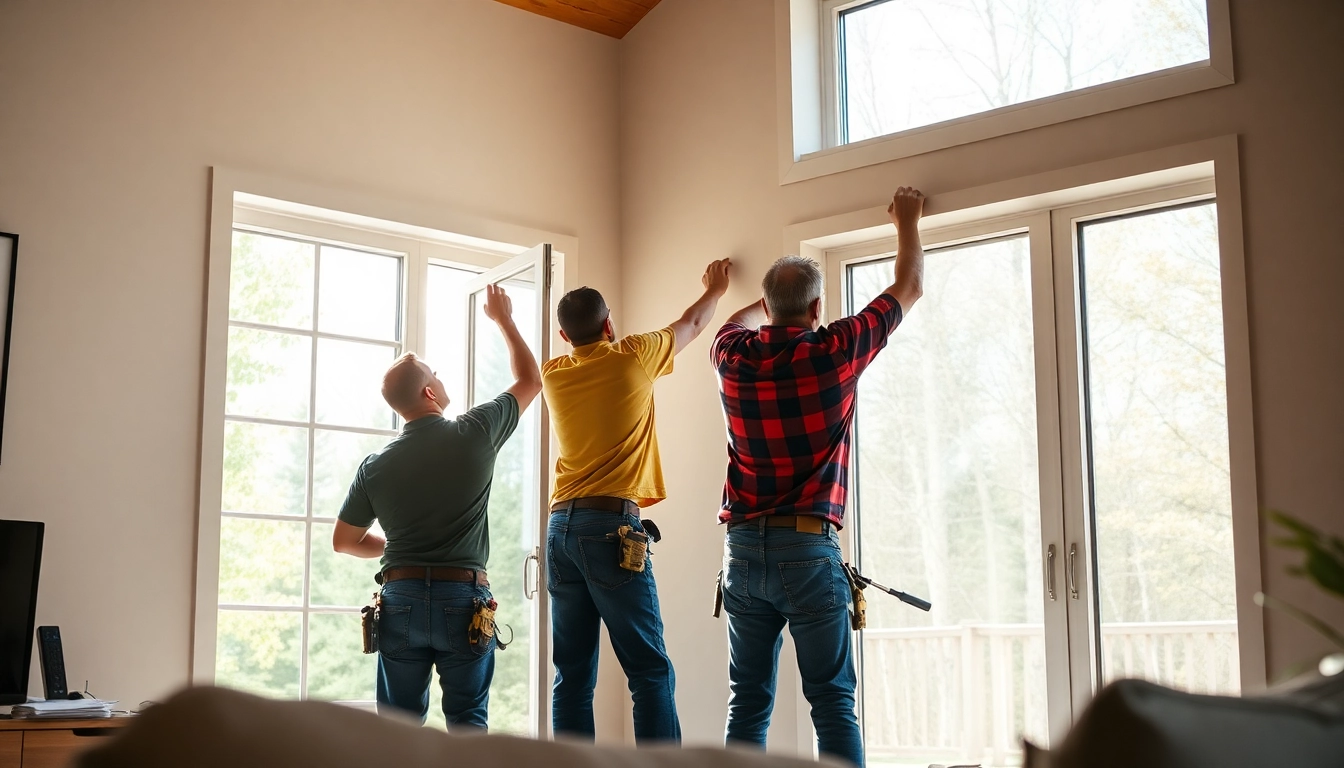Understanding Liquid Screeding in Birmingham
When it comes to modern flooring solutions in Birmingham, liquid screeding has gained prominence for its efficiency, versatility, and superior finish. This innovative flooring method involves pouring a flowable, self-leveling screed mix that creates a smooth, even surface suitable for various coverings such as tiles, carpets, or laminate flooring. For homeowners and contractors seeking high-quality results, selecting expert liquid screeding services in Birmingham is crucial to ensure durability, precision, and optimal performance. If you’re exploring options for new floor installations or renovations, understanding what liquid screeding entails and its advantages can significantly influence your project’s success.
To discover top-tier professionals in Birmingham, consider visiting Liquid screeding Birmingham for tailored solutions that meet your specific needs.
What Is Liquid Screeding and How It Works
Liquid screeding is a specialized method of applying a free-flowing, self-levelling composite material on subfloors to prepare them for final floor finishes. Composed of a mixture of cement, fine aggregates, water, and sometimes additives, the liquid screed is pumped onto the surface and then spreads evenly under gravity’s influence. Advanced pumping technology enables precise placement even over large areas, which minimizes manual labor and reduces installation time.
The key to its performance lies in the formulation, which ensures the mixture remains fluid during pouring, yet cures into a hard, durable surface. This process involves careful mixing, controlled pouring, and proper curing to guarantee a flat and stable foundation for subsequent flooring layers.
Advantages of Liquid Screed over Traditional Methods
Compared to conventional sand and cement screeds, liquid screeding offers numerous benefits that make it a preferred choice for many projects in Birmingham:
- Speed of Installation: Liquid screeds can be applied more rapidly due to their pumpability and self-leveling properties, reducing overall development time.
- Enhanced Flatness and Smoothness: The flowable nature ensures a highly level surface, which minimizes the need for additional levelling or grinding.
- Better for Underfloor Heating: Its excellent thermal conductivity and uniformity improve the efficiency of underfloor heating systems.
- Reduced Waste and Labor Costs: Precision pouring results in less material wastage and decreased labor requirements, translating into cost savings.
- Versatility: Suitable for both new builds and refurbishment projects, including uneven or challenging substrates.
- Improved Strength and Durability: When cured correctly, liquid screeds provide a robust and long-lasting foundation.
These advantages have made liquid screeding a popular choice among Birmingham developers and homeowners aiming for high-quality, efficient flooring solutions.
Common Applications in Birmingham Residential and Commercial Projects
Liquid screeding is versatile and widely applicable across a variety of construction and renovation contexts in Birmingham:
- Residential Developments: Creating level floors for apartments, houses, extensions, and basements with minimal disruption and rapid turnaround.
- Commercial Spaces: Offices, retail outlets, and warehouses benefit from its quick installation, ensuring operational continuity.
- Underfloor Heating Systems: The excellent thermal properties of liquid screed make it ideal when combined with underfloor heating, providing efficient heat distribution.
- Refurbishments and Retrofitting: Upgrading uneven or damaged floors with minimal impact on existing structures.
Leading local providers, such as Liquid Screed Floors Under Floor Heating Birmingham, specialize in tailored solutions for diverse project requirements, showcasing the broad scope of liquid screeding applications.
Choosing the Right Liquid Screeding Contractor in Birmingham
Key Qualities to Look for in a Professional Installer
Selecting a reputable contractor is vital to ensure your project’s success. Consider these key qualities:
- Experience and Expertise: Look for companies with a proven track record in liquid screeding, especially within Birmingham and the West Midlands.
- Accreditations and Certifications: Verify adherence to industry standards and qualifications for quality assurance.
- Advanced Equipment: Modern, well-maintained pumping and mixing tools ensure consistent results.
- Transparency and Communication: Clear estimates, project timelines, and open communication channels build trust.
- Portfolio and References: Request case studies or references that demonstrate previous successful projects.
Questions to Ask Before Hiring a Liquid Screeding Service
To make an informed decision, consider asking potential contractors the following:
- What experience do you have with projects similar to mine?
- Can you provide references or examples of completed works?
- What materials and additives do you use, and how do they impact performance?
- What is the estimated timeline from preparation to curing?
- How do you ensure quality control during installation?
- What are the curing and drying times, and how should I prepare for the next stage?
Ensuring Quality and Durability in Your Flooring
Achieving a high-quality, durable floor depends on meticulous planning and execution. Key considerations include:
- Proper substrate preparation to ensure adhesion and minimize cracking.
- Using suitable additives to enhance properties like flexibility, waterproofing, or thermal conductivity.
- Maintaining optimal environmental conditions—temperature and humidity—during curing.
- Allowing sufficient drying and curing time before applying final floor finishes.
Consulting experienced professionals familiar with Birmingham’s climate and construction practices can optimize durability and performance.
Installation Process and Best Practices
Step-by-Step Guide to Liquid Screed Installation
The typical process involves several critical steps:
- Assessment and Planning: Evaluating the subfloor and determining the appropriate screed thickness and additives.
- Surface Preparation: Cleaning, leveling, and repairing the substrate to ensure stability and adhesion.
- Priming: Applying primer if required to enhance bonding with the substrate.
- Mixing: Combining the screed materials accurately, often with additives for desired properties.
- Pumping and Pouring: Using specialized equipment to pour the liquid screed evenly across the surface.
- Spreading and Levelling: Ensuring a natural, self-levelling flow that results in a flat surface.
- Finishing: Smoothing or applying edge trims as needed.
Preparation and Surface Requirements
To guarantee optimal results, substrates should be free from dust, debris, and loose material. The moisture content must be within acceptable limits to prevent issues like cracking or delayed curing. Any existing underfloor heating systems should be pressure-tested and fully operational before screeding begins.
Drying and Curing Times for Optimal Results
Complete curing typically takes around 28 days, but the initial drying phase before applying floor finishes generally requires at least 7 to 14 days. During this period, maintaining proper temperature and humidity levels accelerates curing and prevents surface defects.
Maintenance and Long-Term Performance
Tips for Maintaining Liquid Screed Floors
Keeping your liquid screed floors in prime condition involves simple but effective practices:
- Regularly clean the surface with gentle sweeping or damp mopping.
- Avoid using harsh chemicals or abrasive cleaners.
- Keep heavy objects or furniture balanced to prevent uneven pressure.
- Address minor cracks or damages promptly with suitable repair compounds.
How to Identify and Address Potential Issues
Common problems include cracking, surface discoloration, or unevenness. These often result from improper preparation, insufficient curing, or substrate movement. Early detection and consulting experts can prevent deterioration. Routine inspections and timely repairs extend the lifespan of your flooring.
Enhancing Floor Longevity with Regular Upkeep
Applying protective coatings, maintaining appropriate humidity levels, and limiting heavy impact help reinforce the floor’s integrity over time. Partnering with experienced professionals for periodic assessments ensures your liquid screed floors remain resilient and aesthetically pleasing for decades.
Cost, Regulations, and Future Trends
Pricing Factors for Liquid Screeding Projects in Birmingham
Costs can vary based on project size, complexity, and specific requirements. Typically, rates in Birmingham range from £10 to £20 per square meter, but factors influencing price include substrate condition, screed thickness, and the choice of additives or underfloor heating integration. Obtaining detailed quotes from multiple local specialists guarantees competitive pricing and clarity on included services.
Building Regulations and Compliance in the West Midlands
All liquid screeding works must adhere to UK Building Regulations and health and safety standards. This includes proper substrate preparation, material quality checks, and installation by certified professionals. Contractors experienced with Birmingham’s local codes will ensure compliance and avoid costly legal or remedial issues.
Emerging Technologies and Sustainable Screeding Alternatives
The industry is witnessing innovations such as eco-friendly materials with lowered carbon footprints and energy-efficient curing methods. Additionally, developments in self-healing screeds and smart sensors for monitoring curing progress promise to further enhance performance, sustainability, and cost-effectiveness in Birmingham’s construction landscape.



